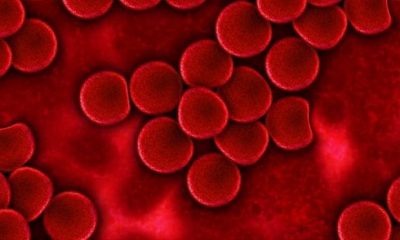You might want to take your vitamin D levels seriously. A new study has found low vitamin D levels are associated with premature death.
Researchers from the University of South Australia (UniSA ) conducted the study — published in the journal Annals Of Internal Medicine — which found the severity of vitamin D deficiency was closely linked to increased mortality risk.
“While severe vitamin D deficiency is rarer in Australia than elsewhere in the world, it can still affect those who have health vulnerabilities, the elderly, and those who do not acquire enough vitamin D from healthy sun exposure and dietary sources,” first author, Josh Sutherland, and a Ph.D. student at UniSA, said, reported SciTechDaily.
Vitamin D is an essential nutrient needed by the body to ensure good, healthy bones and muscles.
“Our study provides strong evidence for the connection between low levels of vitamin D and mortality, and this is the first study of its kind to also include respiratory disease-related mortality as an outcome,” Sutherland continued. “We used a new genetic method to explore and affirm the non-linear relationships that we’ve seen in observational settings, and through this, we’ve been able to give strong evidence for the connection between low vitamin D status and premature death.”
Speaking of challenges in conducting efficient studies on the relation between vitamin D and death risk, Sutherland said, “Vitamin D deficiency has been connected with mortality, but as clinical trials have often failed to recruit people with low vitamin D levels – or have been prohibited from including vitamin deficient participants – it’s been challenging to establish causal relationships.”
For the study, the researchers scrutinized 307,601 records from the UK Biobank, which has participants recruited between March 2006 and July 2010.
Vitamin D levels less than
Senior investigator and Director of UniSA’s Australian Centre for Precision Health, Professor Elina Hyppönen, said more research will help inform public health strategies, which, in turn, will help formulate national guidelines.
“The take-home message here is simple – the key is in the prevention. It is not good enough to think about vitamin D deficiency when already facing life-challenging situations when early action could make all the difference,” Hyppönen said. “It is very important to continue public health efforts to ensure the vulnerable and elderly maintain sufficient vitamin D levels throughout the year.”
Another vitamin, B3, is in the news. A study has found the vitamin B3 supplement nicotinamide riboside (NR), promoted as an anti-aging product, may increase cancer risk and brain metastasis.
“Some people take them [vitamins and supplements] because they automatically assume that vitamins and supplements only have positive health benefits, but very little is known about how they actually work,” co-author Elena Goun explained. “Because of this lack of knowledge, we were inspired to study the basic questions surrounding how vitamins and supplements work in the body.”
















